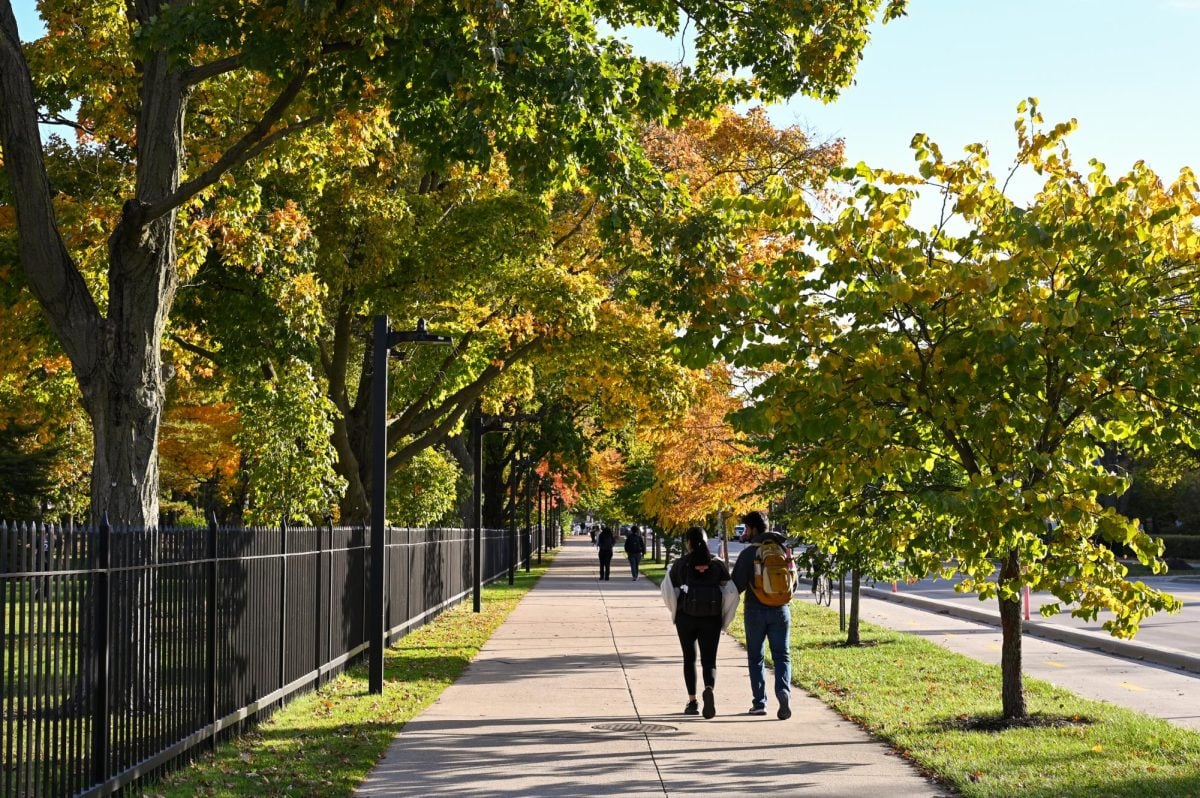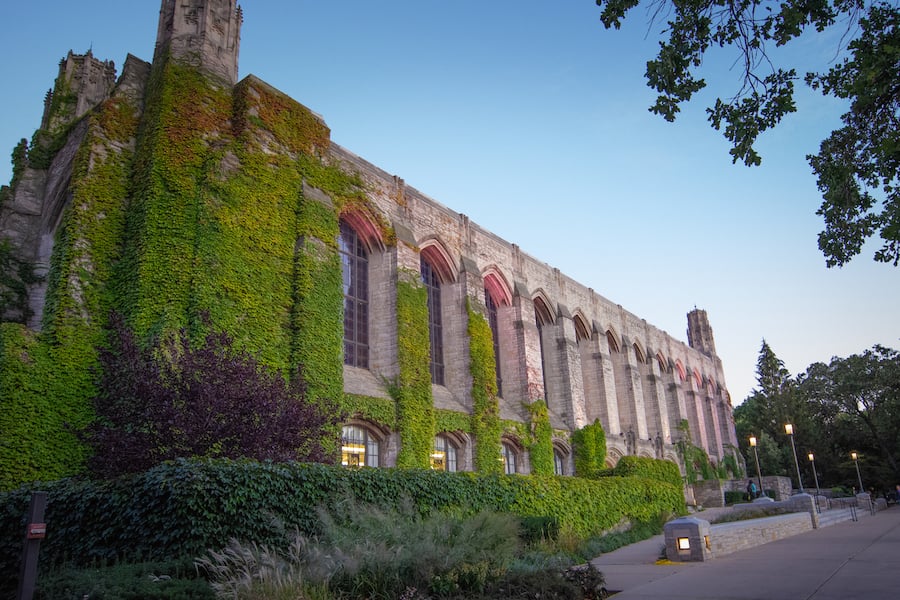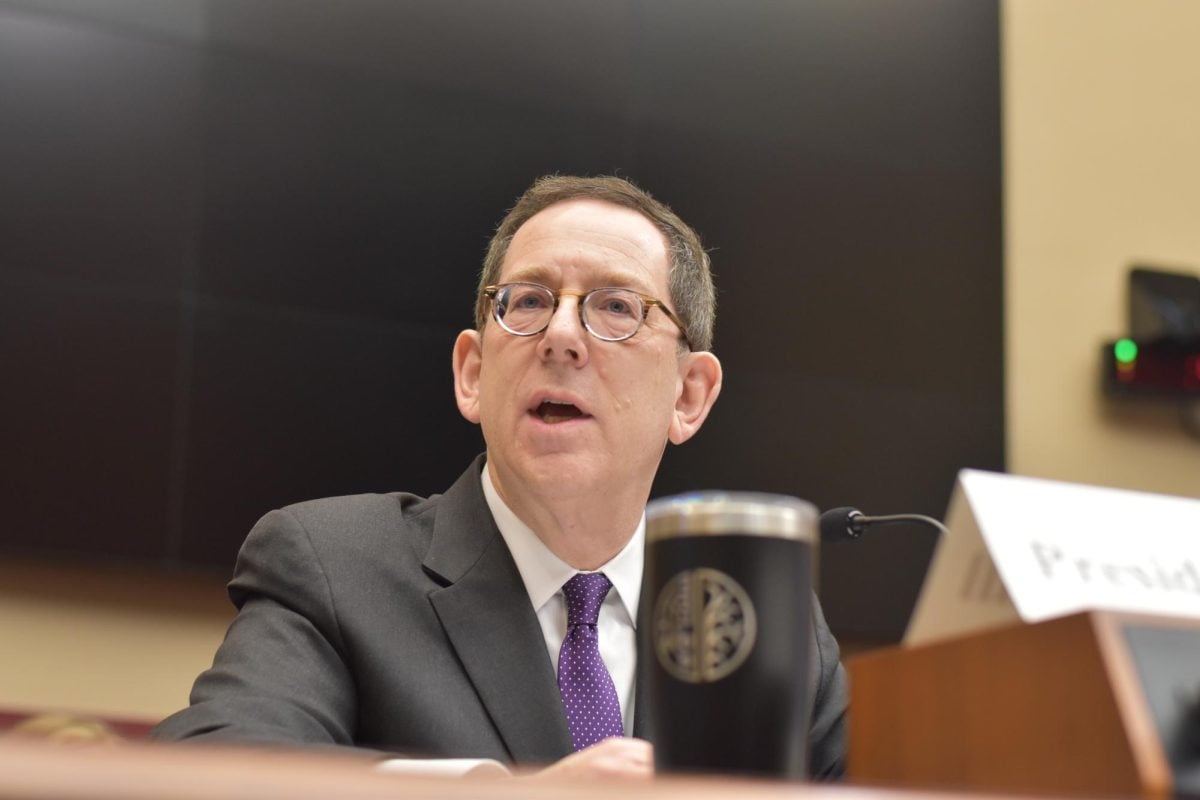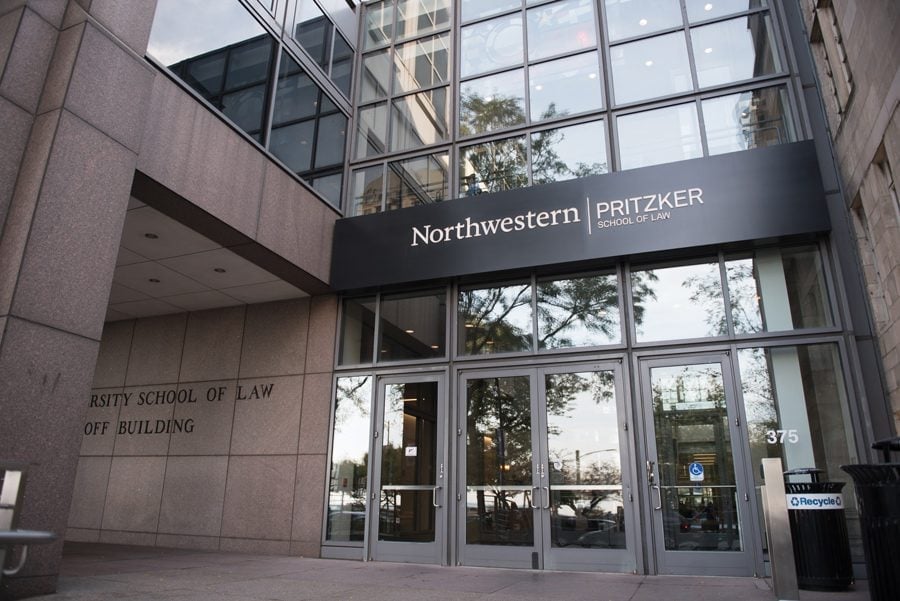Instead of dumping their leftover lunches into the usual trash cans, students eating at 1835 Hinman dining hall Tuesday heaped uneaten food into a large white bin to later be weighed in an effort to promote sustainability on campus.
NuCuisine launched this year’s Weigh Your Waste program Monday to raise awareness of the amount of waste produced by uneaten foods in dining halls. The program was planned in conjunction with Green Cup, an annual competition between Northwestern residential halls and colleges and Greek houses to conserve the most water and energy during the month of February.
Select dining halls’ generated lunch waste will be weighed through Friday. The dining hall that wastes the least amount of food wins a carnival-themed dinner, according to the nuCuisine website.
“It brings awareness of how much food actually goes to the landfills,” nuCuisine’s district marketing manager Pam Yee said. “It can be prevented. The dining halls are all-you-can-eat type facilities, but that doesn’t mean that you have to load your plate up. You can go back and get more. If you want to try something, you can try a smaller portion and then go back to get more.”
Yee said the waste is weighed and divided by the number of students who ate in that particular dining facility to determine the estimated waste per person. Sargent dining hall’s waste was measured Monday and Hinman dining hall’s Tuesday. The dining hall in Foster-Walker Complex is scheduled for Wednesday, Allison dining hall for Thursday and Willard and Elder dining halls Friday.
During Green Cup, which begins Feb. 1, Sodexo and nuCuisine partner with Students for Ecological and Environmental Development to spread awareness on sustainability with programs such as Weigh Your Waste. Green Cup co-chairmen and Weinberg sophomores Irene Tu and Kristine Werling said the program is key in reminding students that food is a large part of the green initaitive.
“It’s not just turning off your lights or shorter showers or less water … Food plays a roll in that as well,” Werling said. “I think sometimes people forgot that aspect of it so it’s nice to have Sodexo on board with us in that sense and help spread the word about that.”
Tu said students who eat in dining halls particularly need to be reminded of their environmental impact.
“Especially if you live in a dorm you have so much access to food and it’s just buffet style and you’re like ‘Oh, I can just grab however much food I want and if I don’t want it I’ll throw it out,'” she said. “And in that case you don’t see the impact.”
Yee said nuCuisine uses the weighed waste to determine future food production. “If someone takes a large helping of a certain item and doesn’t eat it, we keep preparing based on what was that number from before,” she said.
On the select days a dining hall is scheduled to weigh their waste, signs are posted to talk about the statistics of wasted food, including reminders to students to only take the food they plan to eat.
Trash cans by the conveyer belt for plates had their lids off and students were able to visualize all the food being thrown away.
Communication freshman Mercy Yang ate lunch in Hinman on Tuesday and said while she is not in the habit of wasting food, she thinks the waste awareness program is important for other students who might be.
“We see the trash can with all the wasted food and it’s kind of sad,” Yang said.
However, Weinberg freshman Sarah Bridgewaters said although the message nuCuisine is presenting is important, she isn’t sure if students will take it seriously or waste less food.
“I guess it’s a cool way to see how much we waste and how much we throw out,” she said. “But I don’t think it’s going to make that much of an impact with people.”
Yee said nuCuisine works with the dining halls and Campus Kitchens, an NU branch of a national volunteer organization, to make sure the unserved food from dining halls goes to people in need instead of being thrown away. Campus Kitchens provides meals for seniors, youth programs and other organizations in the community.
Yee said nuCuisine will also host a Green Cup dinner in all dining halls Wednesday evening featuring local and sustainable foods.
She said she hopes the Weigh Your Waste program will help students think about their environmental footprint when eating in dining halls.
“By taking only what you can eat or just not wasting that food, it helps us produce less,” Yee said. “It means less waste of waste, energy, water – it’s kind of all interconnected.”






